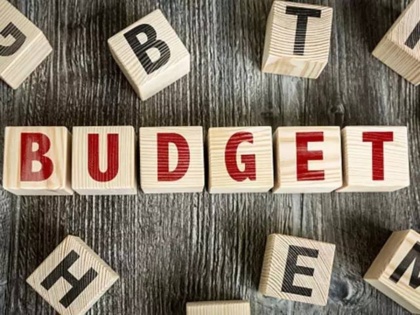Budget 2020: Key financial terms you should know before February 1
By Lokmat English Desk | Published: January 30, 2020 01:21 PM2020-01-30T13:21:24+5:302020-01-30T13:30:43+5:30
Finance Minister Nirmala Sitharaman is all set to present her second budget on February 1 and ahead of the ...

Budget 2020: Key financial terms you should know before February 1
Finance Minister Nirmala Sitharaman is all set to present her second budget on February 1 and ahead of the Union Budget let us do a quick recap of some of the important terms and frequently asked questions about the Union Budget.
What is Budget?
Presented by the finance minister in the Lok Sabha, Budget is a detailed statement of the estimated revenues and expenditure to be incurred by the government in a particular fiscal year.
What is Economic Survey?
A flagship annual document of the finance ministry, the Economic Survey reviews developments in the Indian economy over the previous twelve months, summarises the performance on major development programmes and highlights the policy initiatives of the government and the prospects of the economy in the short to medium term.
What is Income Tax?
Tax levied on the income of the individuals from various sources like salaries, investments, interests, etc is known as income tax. Individuals are taxed under various slabs and rates depending on their age and amount of income earned. An individual earning income below the minimum threshold limit is exempt from paying taxes.
What is Direct Tax?
These are levied on the income of individuals or organisations like income tax, corporate tax, inheritance tax etc.
What is Indirect Tax?
These are the taxes paid by the consumers when they buy goods and services. Last year a new indirect tax structure was introduced, GST, which subsumed a dozen of state levies. GST stitched together a common national market among states and consolidated a patchwork of local and central duties such as excise into a single levy.
What is Inflation?
It is the general rise in price of goods and services in a economy for a period of time. When the general price level rises, each unit of currency buys fewer goods and services. Consequently purchasing power of money is reduced.
What is Fiscal Deficit?
When the government's non-borrowed receipts fall short of its entire expenditure, it has to borrow money from the public to meet shortfall. The excess of total expenditure over total non-borrowed receipts is called fiscal deficit.
What is Fiscal Policy?
Government's action with respect to aggregate levels of revenue and spending. It is implemented through the Budget and is the primary means by which the government can influence the economy.
What is Gross Domestic Product (GDP)
GDP per capita is often considered to be an indicator of a country's standard of living. Market value of all officially recognised final goods and services produced within a country during a given period of time indicates its GDP.